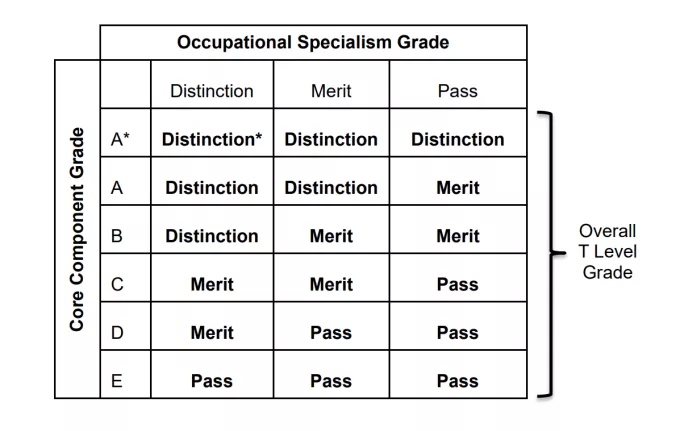Today, the Department for Education has published an updated version of its T-level action plan.
In less than a year's time, the first three T levels will be rolled out in 50 providers across the UK: construction, digital and education and childcare.
The DfE has now confirmed the subjects that will be introduced in 2022 and 2023, as well as releasing further information about the T-level transition programme and how the new qualifications will be graded.
T levels: What are they and how will they work?
T levels: what subjects can you take?
Russell Group universities still undecided on T levels
T-level subjects being introduced in 2022
Legal, finance and accounting route
Legal
Financial
Accountancy
Engineering and manufacturing route
Maintenance, installation and repair
Manufacturing and process
Design, development and control
Business and administration route
Management and administration
Human resources
T-level subjects being introduced in 2023
Agriculture, environmental and animal care route
Animal care and management
Agriculture, land management and production
Creative and design route
Craft and design
Culture heritage and visitor attractions
Media, broadcast and production
Hair and beauty route
Hair, beauty and aesthetics
Catering and hospitality route
Catering
Who can teach T levels?
To be considered for T level delivery in 2022 and 2023, providers will be required to:
- Have an Ofsted rating of outstanding or good (those providers which have not yet been subjected to a full inspection should be able to demonstrate that they can meet that standard of quality)
- Have satisfactory financial health or better
- Be delivering T levels to a minimum of 10 students per T-level subject.
How will T levels be graded?
Overall T level grades will be based on:
- The comparative size of the core element (20 to 50 per cent) and the occupational specialism (50 to 80 per cent).
- The grade for the core (A*-E) and the occupational specialism (pass, merit or distinction).
How grades are assigned will differ from T level to T level:
T-level transition programme
Details of the T level transition programme has also been published. There will be five core content components:
Diagnostic and guidance period
To assess students’ capability and support needs in order to tailor their transition programme to address these needs, and help students decide which T level route they want to prepare for.
English and maths
Students who do not hold at least one GCSE grade 4 in English and/or maths are required to continue studying as per the condition of funding.
Work experience and preparation
To develop the skills, behaviours, attitude and confidence that will be needed for students to complete the T level industry placement.
Introductory technical skills
Introductory skills and concepts to prepare students for the T level route they wish to progress to.
Pastoral support and personal development
Relevant and meaningful support to address barriers to education, support emotional and/or mental health difficulties, and support the development of study skills, and reflective and resilience skills.
Some 35 providers have signed up to deliver the T-level transition programme from September 2020. The Association of Colleges is working with The Challenge network to support the providers in their preparations and delivery.
Evaluating industry placements
The action plan reveals that the Institute of Employment Studies (IES) is currently carrying out an evaluation of the industry placement support that's been put in place for post-16 providers and employers.
It will focus on how much support they have had with the planning and implementation of industry placements during 2018-19. The DfE says this evaluation will help it to establish whether or not there are any gaps that need to be filled before the qualifications are rolled out. The report expected to be published in the autumn.







